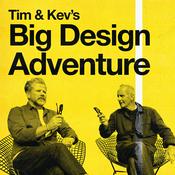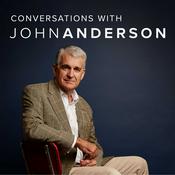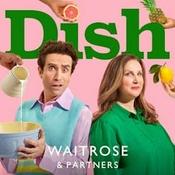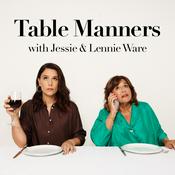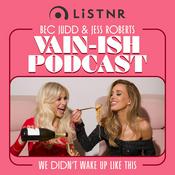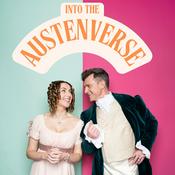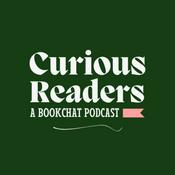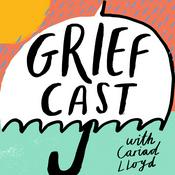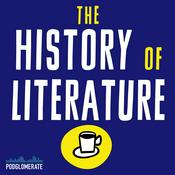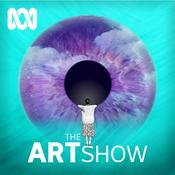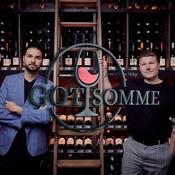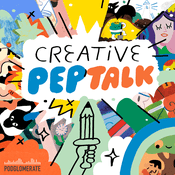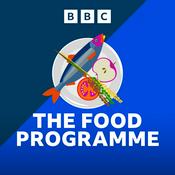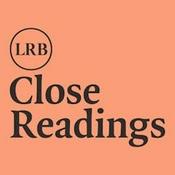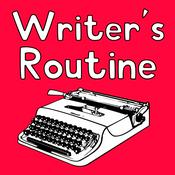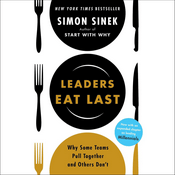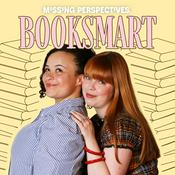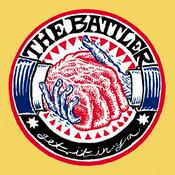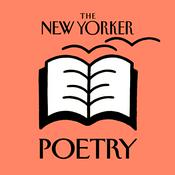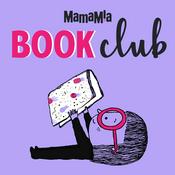Nutrition Science Bites with Professor Clare Collins AO
Clare Collins
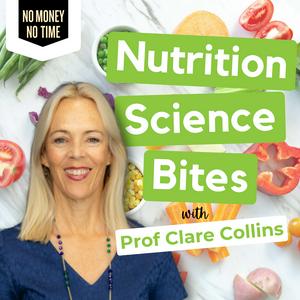
Latest episode
98 episodes
Legumes - why learning to love them will save you money and time! with Ilyse Jones
11/02/2026 | 39 mins.To celebrate The Grains and Legumes Pulses Week this week, Prof Clare Collins and Ilyse Jones dive into the importance of pulses. They clarify what pulses are, distinguishing them from legumes and discussing their nutritional benefits, including high fiber and protein content. The conversation highlights the importance of incorporating a variety of pulses into our dietary patterns for optimal health, as well as their role in reducing healthcare costs associated with chronic conditions like heart disease. They share insights from a recent study indicating that increasing pulse consumption could save millions in healthcare costs in Australia, emphasising the need for greater awareness and consumption of these nutrient-dense foods.
Prof Clare and Ilyse also discuss practical ways to incorporate pulses into everyday meals, sharing tips on how to sneak them into family recipes without anyone noticing. They explore various recipes, from lentil Bolognese to baked bean pizzas, and highlight the versatility of pulses in different cuisines. The episode wraps up with a call to action for listeners to embrace pulses not only for their health benefits but also for their positive impact on the environment, making them a sustainable choice for the future.
We thank Grains & Legumes Nutrition Council for sponsoring this episode.
No Money No Time Nutrition Label Decoder: https://nomoneynotime.com.au/ebooks-meal-plans-more/nutrition-label-decoder
No Money No Time Pantry, Fridge & Freezer Staples Resource: https://nomoneynotime.com.au/hacks-myths-faqs/pantry-fridge-and-freezer-staples
No Money No Time Easy Easy-as Red Lentil Dahl: https://nomoneynotime.com.au/healthy-easy-recipes/easy-as-red-lentil-dahl
Grains & Legumes Nutrition Council - Pulses Week webpage + recipe eBook: https://www.glnc.org.au/pulses-week-2026/
Read the study - Legume intake associated with potential savings in coronary heart disease-related health care costs in Australia: https://pmc.ncbi.nlm.nih.gov/articles/PMC9319708/
Key Takeaways:
Pulses are high in dietary fiber and protein.
Incorporating pulses can significantly reduce healthcare costs.
Pulses can be easily added to various recipes without altering taste.
Different types of pulses offer different vitamins and minerals.
Eating more pulses contributes to environmental sustainability.
Keywords: pulses, nutrition, legumes, health benefits, sustainable eating, dietary fiber, protein sources, World Pulses Week, recipes, healthcare costs
Hosted on Acast. See acast.com/privacy for more information.What is the Mediterranean diet and should you try it? .. with Associate Professor Evangeline Mantzioris
09/02/2026 | 39 mins.In this conversation, Professor Clare Collins talks to Associate Professor Evangeline Mantzioris about the Mediterranean diet, exploring its cultural variations, health benefits, and practical ways to incorporate its principles into everyday life. They discuss the importance of olive oil, the role of vegetables and legumes, and importance of herbs and spices. Their conversation emphasises the Mediterranean diet as a lifestyle choice that promotes health and well-being. They encourage listeners to adapt their own recipes and make achievable changes in their usual dietary patterns.
Key Takeaways
The Mediterranean diet is diverse and varies by region of the world.
Olive oil is a key component of the Mediterranean diet.
Health benefits of olive oil include heart health and anti-inflammatory properties.
Plant-based foods are central to the Mediterranean diet.
Cultural traditions play a big role in dietary patterns.
Herbs and spices enhance flavor and provide health benefits.
The Mediterranean diet is linked to improved health outcomes.
Adapting recipes can help families incorporate Mediterranean principles.
Eating together and sharing meals is important for health.
Simplicity and practicality are key to dietary changes.
Try Evangeline's Lentil Soup: https://nomoneynotime.com.au/healthy-easy-recipes/evangelines-lentil-soup
To access the Healthy Eating Quiz: Click on the top right hand 'green button' called 'How healthy is my diet' https://nomoneynotime.com.au/
Want a more Personalised Food, Nutrient Assessment Report? Use our Australian Eating Survey - For a 50% discount enter the 'DietCheck' code at the checkout! Purchase here https://australianeatingsurvey.com.au/
Here's the link to the No Money No Time closed Facebook group (be sure to take the Healthy Eating Quiz first) https://www.facebook.com/groups/386824626838448
Our No Money No Time email: [email protected] and our Nutrition Science Bites email: [email protected]
Are you in a position to make donation to support our No Money No Time website? Donate here
Keywords: Mediterranean diet, health benefits, olive oil, cultural variations, nutrition, plant-based diet, herbs and spices, family recipes, dietary patterns, nutrition science
Hosted on Acast. See acast.com/privacy for more information.Can good nutrition improve your response to cancer treatments? ...with Professor Tracy Burrows
02/02/2026 | 35 mins.In this episode of Nutrition Science Bites, Professor Clare Collins interviews Professor Tracy Burrows, a cancer survivor and expert in nutrition and dietetics, in honor of World Cancer Day. They discuss the importance of nutrition in cancer treatment and survivorship, emphasizing the unique challenges faced by individuals undergoing treatment. Tracy shares her personal experiences with chemotherapy and how nutrition has played a crucial role in managing side effects and maintaining a sense of control during her journey. The conversation highlights the significance of person-centered care and the need for tailored nutrition advice for cancer patients.
Tracy introduces an empowering acronym, "CLAWBACK," which stands for Check-in regularly, Lunchbox Ready, Activity, Water, Best Time of Day, Anything is Better than Nothing, Coffee to Count and Kick in Protein. Each component offers practical strategies for cancer survivors and carers to take charge of their personal nutrition and well-being. The episode concludes with a call to action for listeners to participate in a survey aimed at improving personalized nutrition resources for cancer patients, reinforcing the message that everyone’s experience is unique and deserves attention.
Link to Prof Tracy's checklist to CLAWBACK your nutritional status to protect your appetite, muscle mass, body weight and overall wellbeing during cancer treatment https://nomoneynotime.com.au/hacks-myths-faqs/clawback-your-nutrition-appetite-muscle-mass-weight-during-cancer-treatment
Link to complete Prof Tracy's THRIVE survey for anyone living with, or beyond cancer, or carers of someone living with cancer. Please complete it if you would like to help the team design better resources for nutrition and cancer support https://redcap.link/THRIVEsurvey
For more information on nutrition:-
No Money No Time website https://nomoneynotime.com.au/
Peter MacCallum Cancer Centre CanEAT Pathway for patients and carers https://www.petermac.org/patients-and-carers/information-and-resources/caneatpathway/the-caneat-pathway-for-patients-and-carers
Cancer Council Food and Nutrition website https://www.cancer.org.au/cancer-information/causes-and-prevention/diet-and-exercise/food-and-nutrition
To access the Healthy Eating Quiz: Click on the top right hand 'green button' called 'How healthy is my diet' https://nomoneynotime.com.au/
Want a more Personalised Food, Nutrient Assessment Report? Use our Australian Eating Survey - For a 50% discount enter the 'DietCheck' code at the checkout! Purchase here https://australianeatingsurvey.com.au/
Here's the link to the No Money No Time closed Facebook group (be sure to take the Healthy Eating Quiz first) https://www.facebook.com/groups/386824626838448
Our No Money No Time email: [email protected] and our Nutrition Science Bites email: [email protected]
Are you in a position to make donation to support our No Money No Time website? Donate here
Keywords: nutrition, cancer, survivorship, person-centered care, World Cancer Day, chemotherapy, healthy eating, dietetics, cancer support, nutrition strategies
Hosted on Acast. See acast.com/privacy for more information.- In this episode, Prof Clare Collins and Ilyse Jones discuss diverticulitis, a common gastrointestinal condition, particularly as you age. They explore its causes, symptoms, and the importance of dietary management. The conversation emphasises the need for medical advice and the role of fiber in both acute flare-ups (where fibre intake is reduced) and prevention (where fibre needs to be high). They also discuss the stigma around talking about bowel health with healthcare professionals.
No Money No Time: What’s the difference between Diverticulitis and Diverticulosis? …and do you need a special diet?
https://nomoneynotime.com.au/hacks-myths-faqs/whats-the-difference-between-diverticulitis-and-diverticulosis-and-do-you-need-a-special-diet
No Money No Time: How what you eat can help manage constipation https://nomoneynotime.com.au/hacks-myths-faqs/finding-relief-can-diet-improve-constipation
Check Your Alcohol intake here: https://auditscreen.org/check-your-drinking
To access the Healthy Eating Quiz: Click on the top right hand 'green button' called 'How healthy is my diet' https://nomoneynotime.com.au/
Want a more Personalised Food, Nutrient Assessment Report? Use our Australian Eating Survey - For a 50% discount enter the 'DietCheck' code at the checkout! Purchase here https://australianeatingsurvey.com.au/
Here's the link to the No Money No Time closed Facebook group (be sure to take the Healthy Eating Quiz first) https://www.facebook.com/groups/386824626838448
Our No Money No Time email: [email protected] and our Nutrition Science Bites email: [email protected]
Are you in a position to make donation to support our No Money No Time website? Donate here
Keywords: diverticulitis, gastrointestinal health, diet, symptoms, risk factors, medical advice, fiber intake, health management
Hosted on Acast. See acast.com/privacy for more information. - Can what you eat slow aging? In this Nutrition Science Bites episode, Professor Clare Collins and Ilyse Jones discuss the relationship between nutrition and healthy aging. They explore what the research says about optimal dietary patterns associated with living a long life, the importance of social connections, and the impact of energy intake on nutrition and quality of life. They cover the benefits of plant-based foods and offer practical advice for cooking for one while addressing the challenges of loneliness.
No Money No Time: Eating well for one https://nomoneynotime.com.au/hacks-myths-faqs/eating-well-for-one
Try Ilyse's Mushroom Soup recipe: https://nomoneynotime.com.au/healthy-easy-recipes/easy-mushroom-soup
To access the Healthy Eating Quiz: Click on the top right hand 'green button' called 'How healthy is my diet' https://nomoneynotime.com.au/
Want a more Personalised Food, Nutrient Assessment Report? Use our Australian Eating Survey - For a 50% discount enter the 'DietCheck' code at the checkout! Purchase here https://australianeatingsurvey.com.au/
Here's the link to the No Money No Time closed Facebook group (be sure to take the Healthy Eating Quiz first) https://www.facebook.com/groups/386824626838448
Our No Money No Time email: [email protected] and our Nutrition Science Bites email: [email protected]
Are you in a position to make donation to support our No Money No Time website? Donate here
Keywords: #nutrition, #healthyaging, #dietarypatterns, #socialconnections, #plantbasedfoods, #chronicdisease, #longevity, #cookingforone, #healthtips, #wellness, #NutritionScienceBites
Hosted on Acast. See acast.com/privacy for more information.
More Arts podcasts
Trending Arts podcasts
About Nutrition Science Bites with Professor Clare Collins AO
Welcome to Nutrition Science Bites with your host, Professor Clare Collins, AO. Clare's expertise in nutrition research and science communication makes her the perfect dietitian to translate cutting-edge nutrition science into plain language, as well as what to eat and drink (and what to add to your supermarket trolley). The driver behind the website, No Money No Time, and author for 'The Conversation', Prof Clare's practical and informed nutrition advice rises above noisy fads to bring common sense to the important question - What’s for dinner? Hosted on Acast. See acast.com/privacy for more information.
Podcast websiteListen to Nutrition Science Bites with Professor Clare Collins AO, Big Design Adventure and many other podcasts from around the world with the radio.net app

Get the free radio.net app
- Stations and podcasts to bookmark
- Stream via Wi-Fi or Bluetooth
- Supports Carplay & Android Auto
- Many other app features
Get the free radio.net app
- Stations and podcasts to bookmark
- Stream via Wi-Fi or Bluetooth
- Supports Carplay & Android Auto
- Many other app features


Nutrition Science Bites with Professor Clare Collins AO
Scan code,
download the app,
start listening.
download the app,
start listening.

